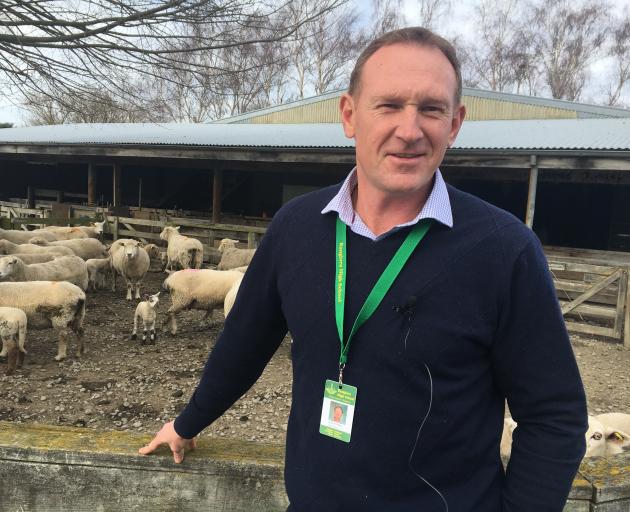
The school is one of only a few in the South Island to have its own farm, giving pupils from a non-farming background a taste of agriculture and offering a wide range of rural based subjects.
Gareth West has been head of land based studies for seven years and said the farm was like an outdoor classroom.
''We operate a 50-acre (20ha) stretch of land which associated to the school, so we are able to bring the students here on a regular basis.

''Sure, you can learn things in text books, but until you're out there practising it, sometimes it's quite hard for the students to understand, so having this facility is just fantastic.''
He said the farm meant pupils with no rural background could get a taste of farming.
''There's a percentage of our families who come from Rangiora and other small towns and don't have a lot of land around them, but this programme enables them to get hands on and get a feel for what it might be like to work in the agriculture industry, which I think is a big eye-opener.''
Mr West said one of the challenges was overcoming perceptions.

''Going through the age groups, there's an equal amount of boys as girls in the programme and I guess that's indicative of the way things are operating on farm these days.
''You don't have to be massively big and strong to operate in a farm situation.''
The farm offered a range of subjects from agri-business, agricultural and horticultural science as a pathway for those looking ahead to studying at Lincoln or Massey universities, to the more practical rural and equine studies and a primary ITO academy.
Rural studies pupils gained work experience on larger local, best-practice farms from year 12.
Principal Karen Stewart said agri-business was introduced this year as a year 13 subject, following community consultation, and would be offered in year 12 from next year, and there were plans to develop the horticultural science programme further to meet the industry demands.
The farm runs 150 ewes and was busy with newborn lambs and some bobby calves had just been brought in for fattening.
''We tie in the lambing to happen within school time, so the students can see what goes on,'' RHS business manager David Lowe said.
The school has a TeenAg (young farmers) club, which helped farm manager Bruce Ayres with feeding the animals during lunchtimes, and a cattle show team, which has enjoyed success in stock judging competitions.
-By David Hill













